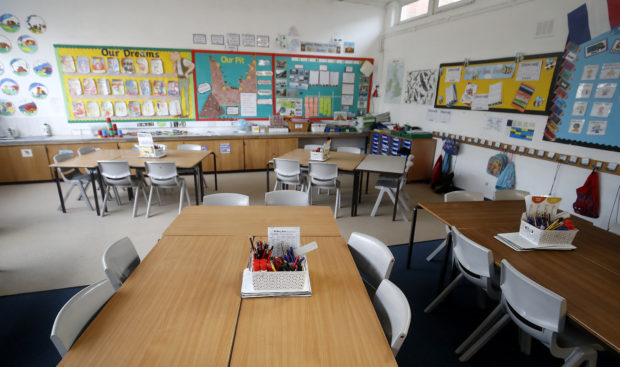
Pupils could miss out on the exam results they deserve this summer as the system risks being “unfair” for disadvantaged students, MPs have warned.
The Commons Education Select Committee report said England’s exams regulator’s process for allowing students to appeal their grades if they believe discrimination has occurred is not accessible for all students.
The summer exams were cancelled due to the Covid-19 pandemic. Instead, GCSE and A-level students in England will be awarded calculated grades on the usual dates next month based on teacher assessment.
But the committee said it was “concerned” that poorer pupils, black, Asian and minority ethnic (BAME) students, and children with special educational needs and disabilities (SEND) “could be disadvantaged” by calculated grades – especially in light of research evidence on unconscious bias.
The report calls for pupils with SEND to be able to appeal results on the basis of malpractice if appropriate access arrangements were not in place for the work used to calculate their grade.
The MPs also argue that disadvantaged pupils, and those without family resources or wider support, “risk being shut out” of the appeals system which is likely to favour more affluent students.
Individual pupils will not be allowed to challenge teacher-assessed grades or rank order – but a school can appeal to the exam board if it believes it made an error when submitting a grade, or if it believes an exam board made a mistake.
Ofqual has said it expects exam boards to investigate evidence of “serious malpractice” raised by pupils who have concerns about bias or discrimination surrounding teacher-assessed grades and rank order.
But the MPs say: “We are extremely concerned that pupils will require evidence of bias or discrimination to raise a complaint about their grades. It is unrealistic and unfair to put the onus on pupils to have, or to be able to gather, evidence of bias or discrimination.”
On the grading system, committee chairman Robert Halfon said: “There is a risk it will lead to unfair bias and discrimination against already disadvantaged groups and we are far from convinced that the appeal system, which will be more important than ever this year, will be fair.
“The appeals process seems to favour the well-heeled and sharp-elbowed and there is the potential for the system to resemble the Wild West of appeals with different systems used by different exam boards.”
Students in England who are unhappy with teacher-assessed grades, or who are unable to receive a calculated grade this summer, can take A-level exams in October and GCSE exams in November.
But the committee has called for the Department for Education (DfE) to provide guidance for schools and colleges, outlining the minimum requirements for teaching support for pupils opting for an exam.
The Government should also extend its £1 billion catch-up funding to include disadvantaged post-16 pupils in colleges and schools to “ensure this is not a lost generation,” the MPs said.
“The pandemic’s impact on learning loss does not stop when pupils turn 16. Post-16 learners, whether they are resitting key English and Maths GCSEs, or preparing to sit final exams before entering higher education or the workplace, deserve proper catch-up support,” the report says.
Mr Halfon added: “The lack of guaranteed support from the DfE for pupils and students doing autumn exams means there isn’t a level playing field for those students. The absence of a post-16 catch-up fund exacerbates these problems.”
Geoff Barton, general secretary of the Association of School and College Leaders, said: “Schools and colleges are utterly opposed to discrimination, and have done everything possible to guard against any hint of unconscious bias. They have gone about the task of deciding centre-assessed grades in extraordinarily difficult circumstances and with the utmost diligence.”
An Ofqual spokesman said: “The standardisation model is a critical tool to make sure standards are aligned between centres and will ensure that national results this summer are broadly similar to previous years.
“We have extensively tested the model to ensure it gives students the fairest, most accurate results possible and, so far as possible, that students are not advantaged or disadvantaged on the basis of their socioeconomic background or particular protected characteristics, and we will evaluate outcomes.
“We agree that students, their parents, carers and teachers need to understand how their results have been calculated and we have committed to publishing full details of the model in due course.”
He added: “We, and exam boards, will do all we can to help students and their families understand how to access an appeal or make a complaint about bias, discrimination, or another concern.
“We will provide accessible information and our helpline, with specially trained staff, will be available to students and their parents or carers to talk about the appeals process and any other questions they may have about their results this summer.”

Enjoy the convenience of having The Sunday Post delivered as a digital ePaper straight to your smartphone, tablet or computer.
Subscribe for only £5.49 a month and enjoy all the benefits of the printed paper as a digital replica.
Subscribe